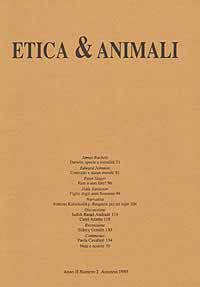Contemporary philosophy is the present period in the history of Western philosophy beginning at the early 20th century with the increasing professionalization of the discipline and the rise of analytic and continental philosophy.
Scott Soames is an American philosopher. He is a professor of philosophy at the University of Southern California, and before that at Princeton University. He specializes in the philosophy of language and the history of analytic philosophy. He is well known for defending and expanding on the program in the philosophy of language started by Saul Kripke as well as being a major critic of two-dimensionalist theories of meaning.
The Philosophical Review is a quarterly journal of philosophy edited by the faculty of the Sage School of Philosophy at Cornell University and published by Duke University Press.
Thomas R. Baldwin is a British philosopher and has been a professor of philosophy at the University of York since 1995. He has written generally on 20th century analytic and Continental philosophy, as well as bioethics, the philosophy of language and of mind, particularly with regard to G. E. Moore, Maurice Merleau-Ponty, and Bertrand Russell.
Ratio is a peer-reviewed academic journal of analytic philosophy, edited by David S. Oderberg and published by Wiley-Blackwell. Ratio is published quarterly and in December publishes a special issue that is focused specifically on one area, calling on specialists in that field of study to contribute.
John Joseph Haldane is a British philosopher, commentator and broadcaster. He is a former papal adviser to the Vatican. He is credited with coining the term 'analytical Thomism' and is himself a Thomist in the analytic tradition. Haldane is associated with The Veritas Forum and is the current chair of the Royal Institute of Philosophy.

The British Journal of Aesthetics is a quarterly peer-reviewed academic journal covering philosophical aesthetics and the philosophy of art. It was established in 1960 and is published by Oxford University Press on behalf of the British Society of Aesthetics. The first issue was edited by Harold Osborne in November 1960. The journal was originally published by Routledge and then by Thames & Hudson, before switching to its current publisher in 1975.
The Philosophical Forum is a philosophy journal published by Wiley-Blackwell. It is currently edited by Alexus McLeod.

John Corcoran was an American logician, philosopher, mathematician, and historian of logic. He is best known for his philosophical work on concepts such as the nature of inference, relations between conditions, argument-deduction-proof distinctions, the relationship between logic and epistemology, and the place of proof theory and model theory in logic. Nine of Corcoran's papers have been translated into Spanish, Portuguese, Persian, and Arabic; his 1989 "signature" essay was translated into three languages. Fourteen of his papers have been reprinted; one was reprinted twice.
The Journal of Documentation is a double-blind peer-reviewed academic journal covering theories, concepts, models, frameworks, and philosophies in information science. The journal publishes scholarly articles, research reports, and critical reviews.
Dialectica is a quarterly philosophy journal founded in 1947 by Gaston Bachelard, Paul Bernays and Ferdinand Gonseth. It was published by Blackwell between 2004 and 2019. As of 2020, it is published in full open access and edited in Switzerland. It focuses on analytic philosophy and is the official journal of the European Society for Analytic Philosophy.

Philosophy & Rhetoric is a quarterly peer-reviewed academic journal covering rhetorical theory, ethics, continental philosophy, informal logic, argumentation theory, critical social theory, and political theory. It is published by Penn State University Press and was established in 1968. The editor-in-chief is Erik Doxtader. The journal was established in 1968 by Henry Johnstone Jr. and Carroll Arnold, who saw a need for a journal that would, among other things, investigate "rhetoric as a philosophical concept".
Population and Development Review is a quarterly peer-reviewed academic journal published by Wiley-Blackwell on behalf of the Population Council. It was established in 1975 and the journal is co-edited by Raya Muttarak and Joshua Wilde. The journal covers population studies, the relationships between population and economic, environmental, and social change, and related thinking on public policy. Content types are original research articles, commentaries, data and perspectives on statistics, archival documents on population issues, book reviews, and official documents from population agencies or related organizations.
Juliet Floyd is professor of philosophy at Boston University. Her strongest research interests lie in early analytic philosophy and she has used early analytic philosophy as a lens to examine a diverse array of topics.
The Journal of Social Philosophy is a quarterly peer-reviewed academic journal of social philosophy covering work of normative and practical significance concerning social and political life. It was established in 1970 by the North American Society for Social Philosophy and is published by John Wiley & Sons. The editor-in-chief is Carol Gould.

Eva Picardi was an Italian philosopher. Picardi's contributions have been in analytic philosophy and linguistics.
Tzachi Zamir is an Israeli philosopher and literary critic specialising in the philosophy of literature, the philosophy of theatre, and animal ethics. He is Professor of English and General & Comparative Literature at the Hebrew University of Jerusalem.

Analytic Philosophy is a quarterly peer-reviewed academic journal covering all areas of philosophy. It is published by Wiley and the editor-in-chief is David Sosa. It was established in 1960 as Philosophical Books, obtaining its current title in 2011.

Etica & Animali was an academic journal of philosophy published quarterly from 1988 to 1998, covering animal ethics. It was established and edited by the Italian philosopher Paola Cavalieri.





